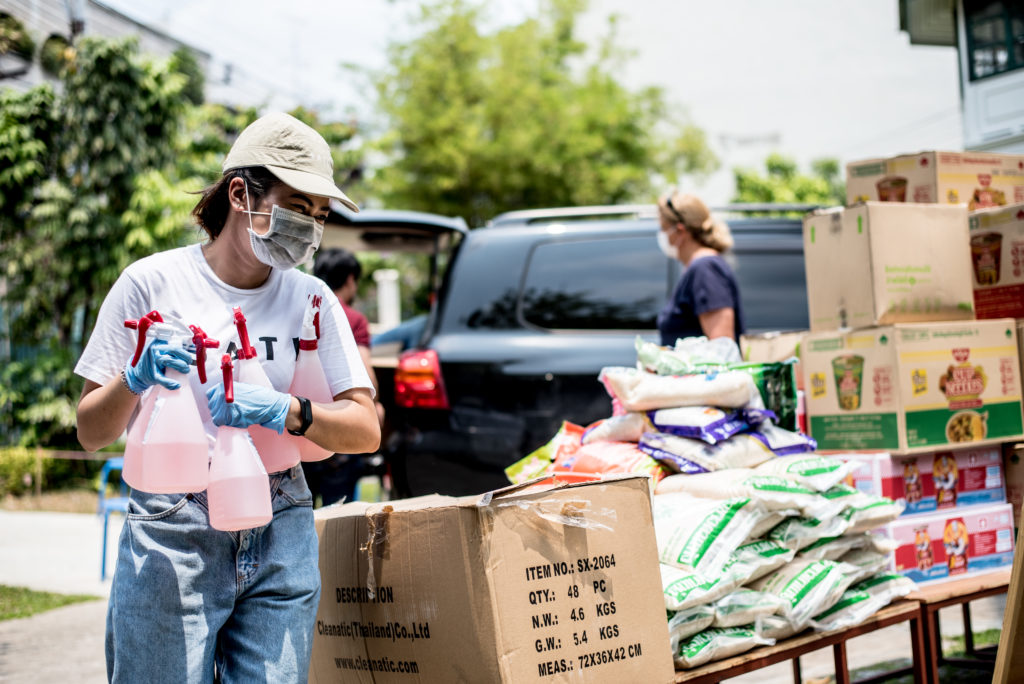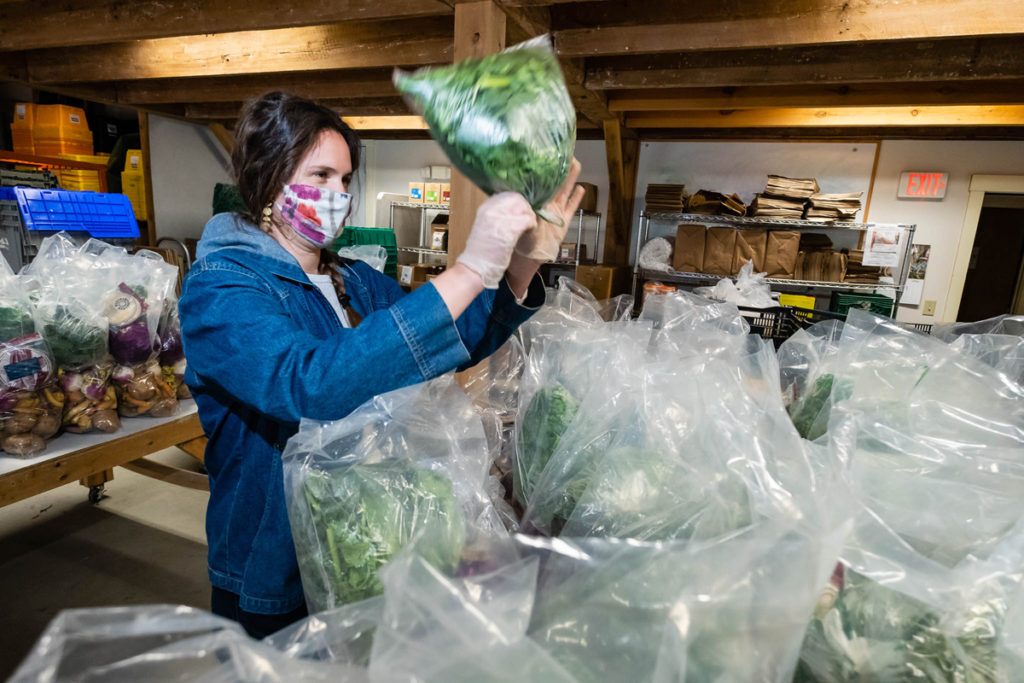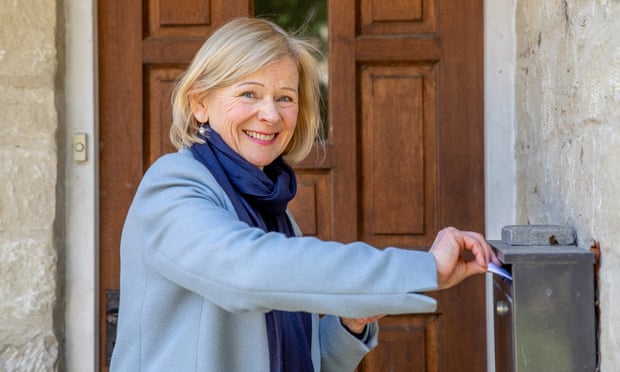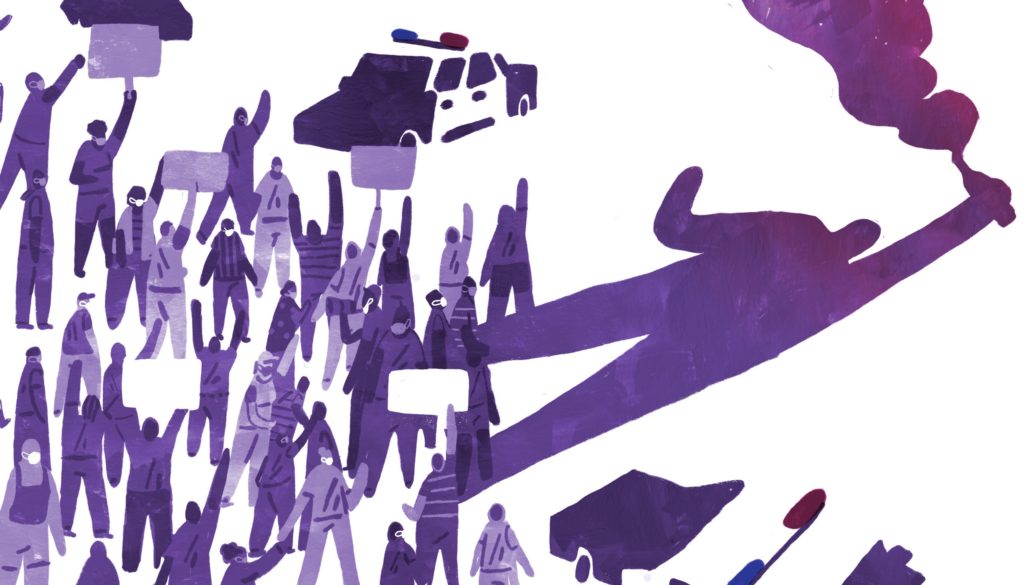Rethinking solidarity during Covid-19 times
At Sparknews, we believe that they can also be great opportunities to adapt and rethink our relations with the world. As a team who wants to ignite new narratives that can accelerate the ecological and social transition, we can’t avoid asking ourselves what will be the shape of the global collective story emerging from the current worldwide sanitary emergency. In this week #SparkMinute, let’s focus on solidarity with local examples, of businesses rethinking their models, and of articles and opinions that can nourish our imagination.

Stand By Me – Ben E. King

When organizations go the extra mile
While organic, local produce is not your typical food donation, a wave of solidarity made it possible to provide the most vulnerable populations with nutritious food. In this piece by Civil Eats, you can discover how The Farm to Food Bank Movement is gaining momentum in the United States. Grassroots and regional programs are all paying farmers to harvest surplus crops to meet soaring food bank demand — a solution to both food waste and to making much needed fresh and local food accessible to all.
Also providing food where it’s most needed, the city of Cambridge, Massachusetts, is ensuring homeless people have meals while keeping local restaurants afloat during the pandemic. Restaurant owners that can’t open to the public are now preparing meals for local homeless shelters that can no longer use volunteers for cooking meals. The City of Cambridge committed to keep paying local restaurants to provide bagged or boxed meals at shelters, as long as social distancing requirements discourage volunteers. Read more on Route Fifty.
While cities worldwide have started a tough but necessary conversation on police brutality, we can also look at the US cities of Newark, New Jersey, or Flint, Michigan, where law enforcement has sided with protesters. According to The Guardian, these images are the result of years of building trust between the police and the population, including setting up a citizens’ police evaluation committee, hiring more ethnic minority officers and training them in civil rights concepts. These measures have been successful, despite initial opposition from powerful police unions.
Early March, the Portuguese government chose a radical path to stop the virus outbreak — granting citizenship rights to all migrants and asylum seekers who had residency applications underway. The move aimed to ensure everybody who needed it had access to social security and health care while the country was battling the spread and effects of the coronavirus. In May, the country’s Foreign Minister Augusto Santos Silva also announced Portugal was to take in 500 children from Greek refugee camps as soon as restrictions on movement are lifted. Learn more on Euronews and Reuters.

Local initiatives against global disorder
To some, the idea of having a surplus of face masks just lying around may seem foreign. But in California, where wildfires have been particularly brutal in recent years, stocking your home with personal protective equipment (PPE) is akin to having batteries on hand. So when the Covid-19 pandemic fuelled an ever-growing need for masks, a group of tech-savvy volunteers created a website called Mask-Match.com. The site has enabled nearly 6,000 donors to send more than 666,000 masks to approximately 7,000 frontline workers. Learn more on The Philadelphia Citizen.

Let’s imagine the future
In this piece for The New Yorker, Keeanga-Yamahtta Taylor, assistant professor of African American studies at Princeton University and author of “From #BlackLivesMatter to Black Liberation”, tries to answer an age-old and tough question — how do we change [the US]? She starts by stating that there is palpable poverty of intellect, a lack of imagination and a banality of ideas pervading mainstream politics today. Drawing from the history of rebellions against police brutality and the political lessons of the past, she insists on the necessity to stop using the same methods, arguments and failed political strategies that have brought all Americans to this moment. Jouez dès maintenant aux meilleurs jeux gratuits sur le site de jeux y8. The unfolding revolt in the US today holds the real promise to change the country, as protests are shining in their racial solidarity. Read more.
At Sparknews, are convinced that the coronavirus global outbreak will lead us to draw valuable lessons about our globalized economic system. Whether on matters like education, solidarity, biodiversity or our way of work, it will be up to us to return to the status quo once the health crisis is over, or to reshape everything. Discover our #SparkMinute on education, energy, work, our diet, biodiversity, democracy, bioregionalism, and gender.




